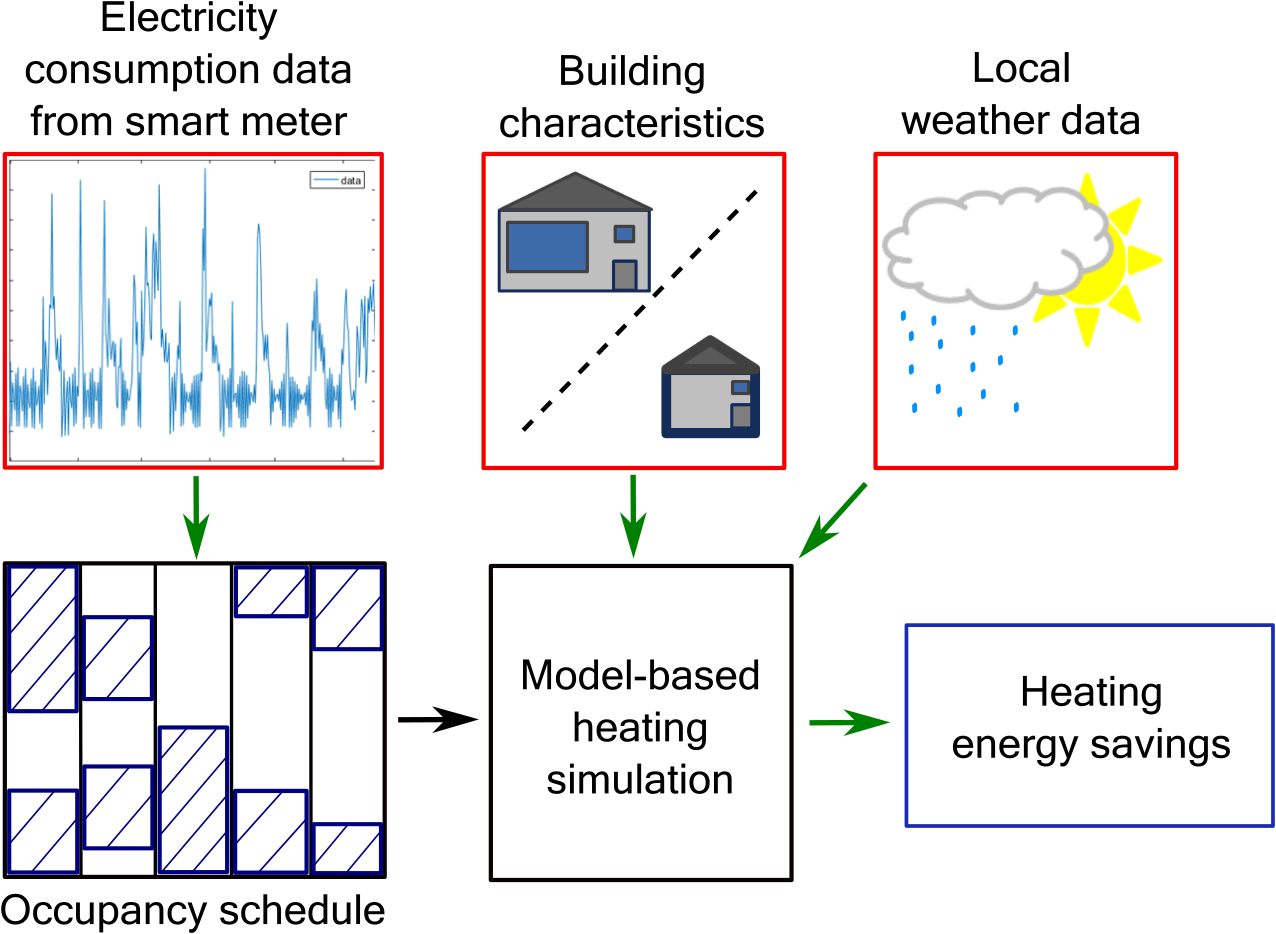Estimating the Savings Potential of Smart Household Thermostats
Heating is the main contributor to energy consumption in households. However, many heating systems still run on fixed schedules, ignoring the fact that heating is in principle only necessary when the home is occupied. Modern sensor-based smart thermostats try to optimize this situation. But when do the expected savings justify the installation of occupancy-aware systems?
Imagine your home’s heating being turned off automatically whenever you leave and turned back on again in time for your return. Or, if you don’t believe in implemented magic, then consider a heating system that you manually control for that purpose with the help of a convenient smartphone app. How much heating energy would you save?
Since about 70% of the energy consumption in Swiss households is due to heating, and homes can now be made smarter through the use of emergent digital technologies, this is a relevant question. Of course, the potential savings depend on specific characteristics of a household. In that respect, three types of parameters are relevant:
(a) The desired temperature and the weather conditions
(b) The characteristics of the building (such as insulation, size, and heating system)
(c) The duration and frequency of absence
For (a) meteorological statistics are available for virtually every geographic location and (b) can be estimated accurately enough using a few simple properties of the house (age, size, etc.). However, (c) is quite challenging: The mean occupancy itself is not as relevant as the distribution of shorter and longer periods of absence. Intriguingly, occupancy patterns can be inferred automatically using data analytics applied to electricity consumption data acquired by smart meters – even if the electricity consumption of the household is only measured once every 30 minutes, an accuracy of about 85% can be achieved.
To answer our initial question, we have developed a system which automatically estimates the heating savings potential for a household when provided with data on its location, age, size, and a trace of its half-hourly aggregated electricity consumption. As our experiments show, the relative savings typically vary between 0% (e.g., for pensioners, who leave their home rarely and only for short periods of time) and 20% (e.g., an employed single person, absent 9-10 hours a day). We also applied our system to a large dataset from Ireland, containing smart meter data and the other required parameters for over 4,000 households. On average, the households could save over 9% in heating energy. More importantly, we could identify households with a significantly higher savings potential – the “low-hanging fruits” for an occupancy-based heating strategy.
What about applicability in practice? Home owners or energy consulting institutions might of course readily use the system to analyze specific households. And since our algorithms are lightweight, they could also be incorporated in smart meters turning them into automatic advisors. An automatically controlled heating system however faces a challenge: In order to be able to preheat the home in time, it would have to precisely predict when the residents return. State-of-the-art systems are quite accurate in that respect, but residents might always surprise them. To cope with early returns, an app-controlled booster-mode seems appropriate. In case of late returns, the system wastes energy – due to this and unavoidable small modeling errors, our method only approximates the potential savings. Nevertheless, it provides reliable insights into whether a particular household would strongly benefit from a smart heating system or not. The lesson we have learned: While smart heating may not be beneficial in all cases, it may be very valuable for some – and aggregate to significant society-wide savings.
ESC member Prof. Friedemann Mattern and his research group from ETH’s Computer Science Department and the external page Bits to Energy Lab conduct research on infrastructures and applications for the Internet of Things. Researchers involved in the smart heating and smart metering areas are Vincent Becker and Dr. Wilhelm Kleiminger.
